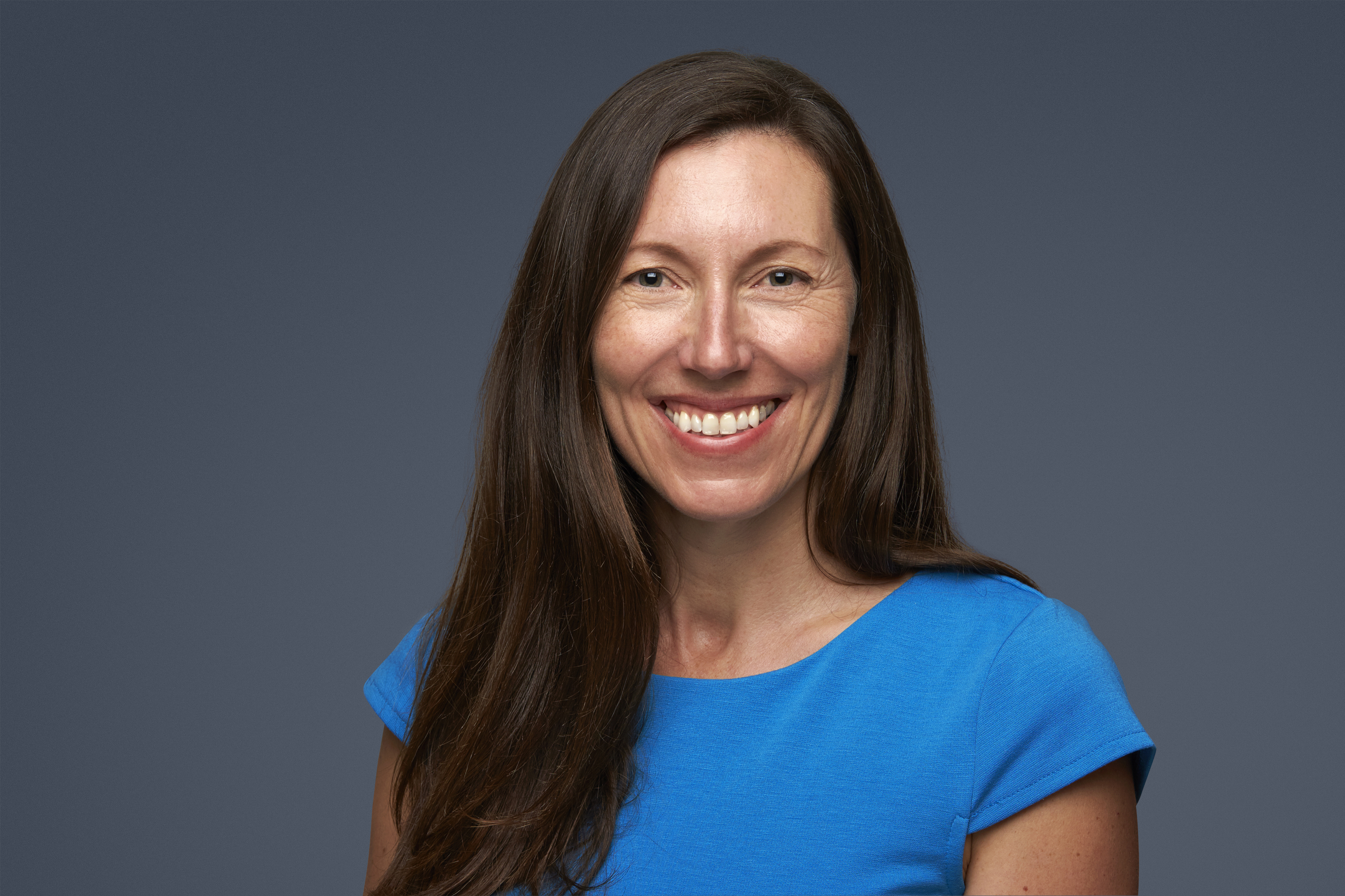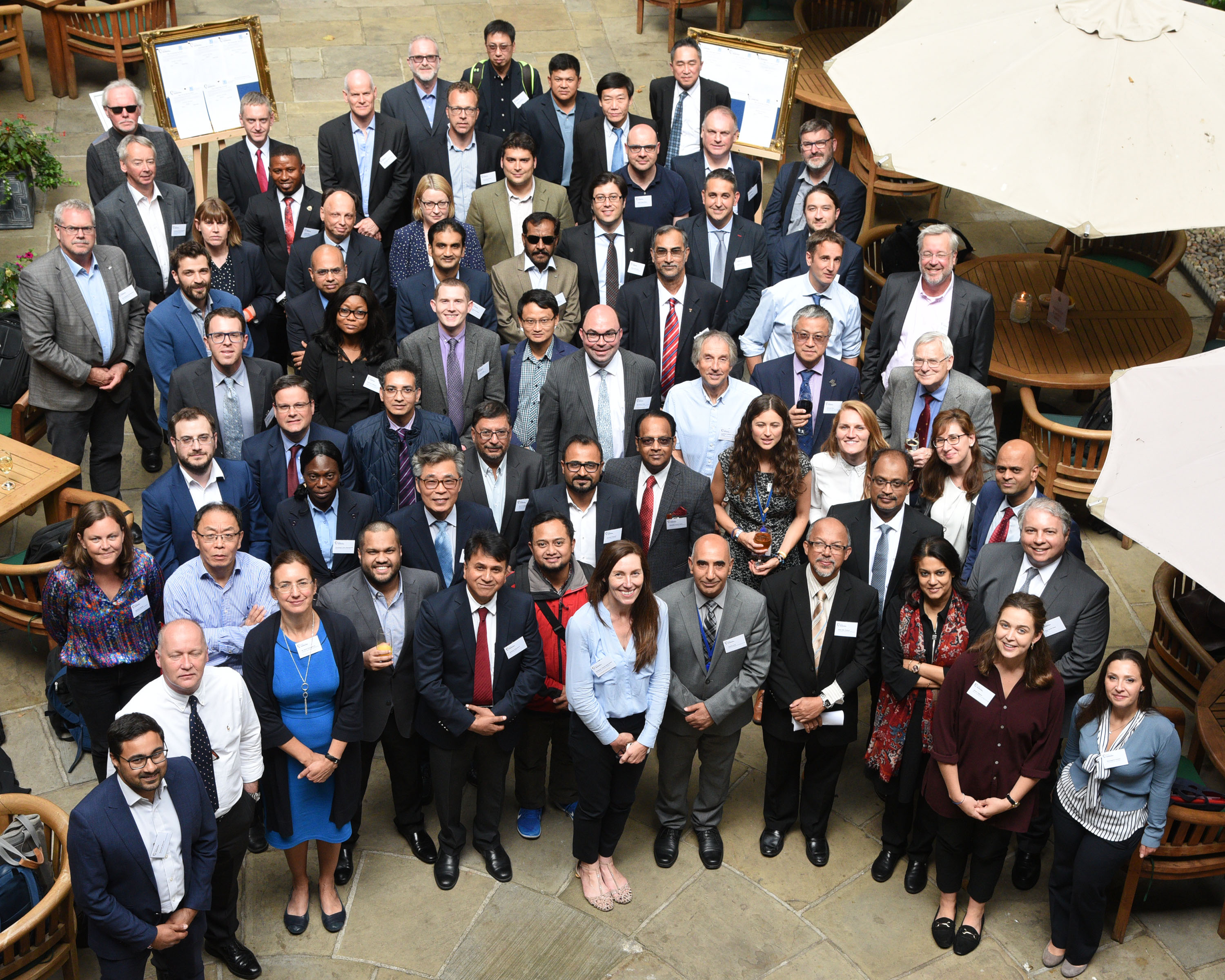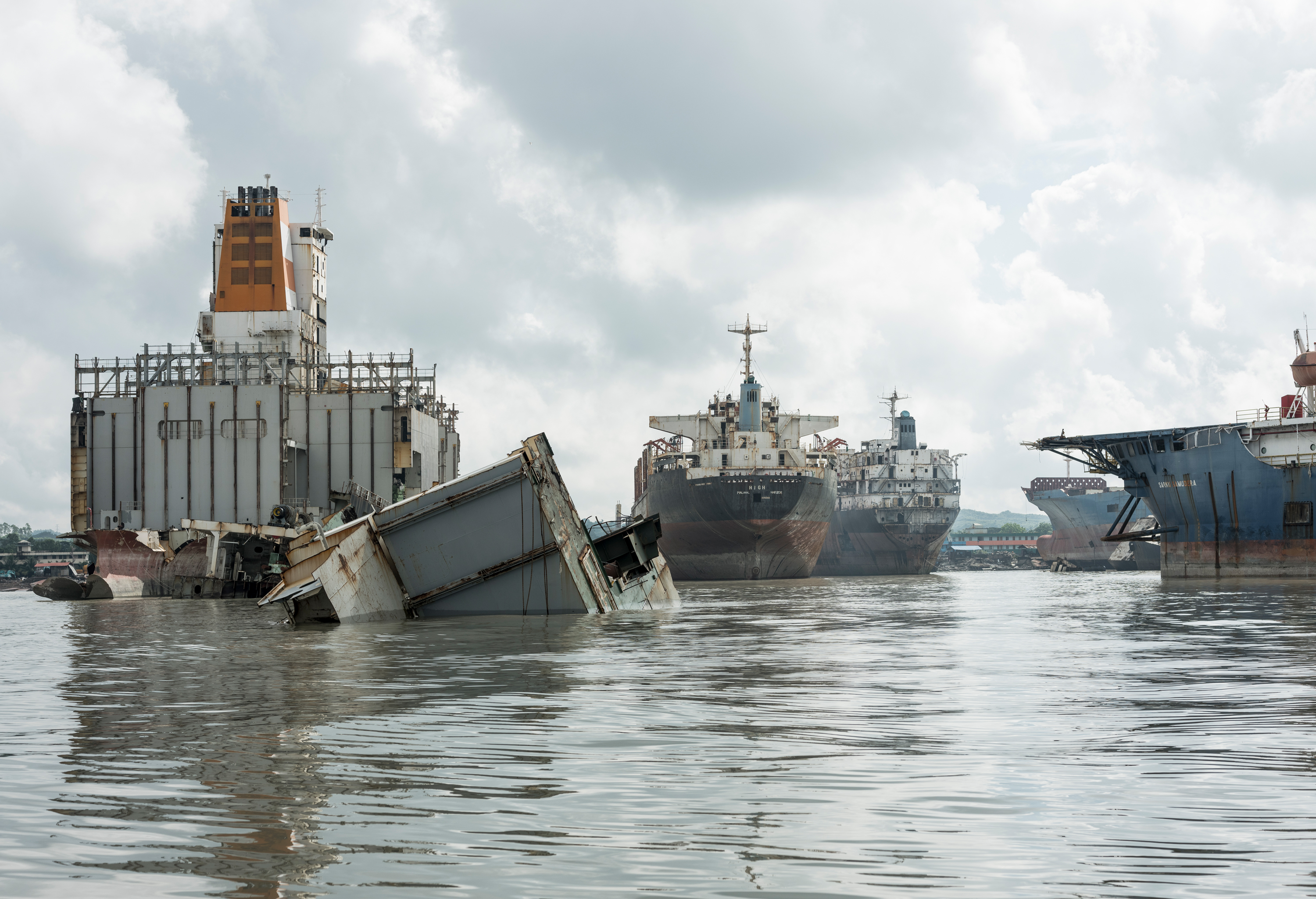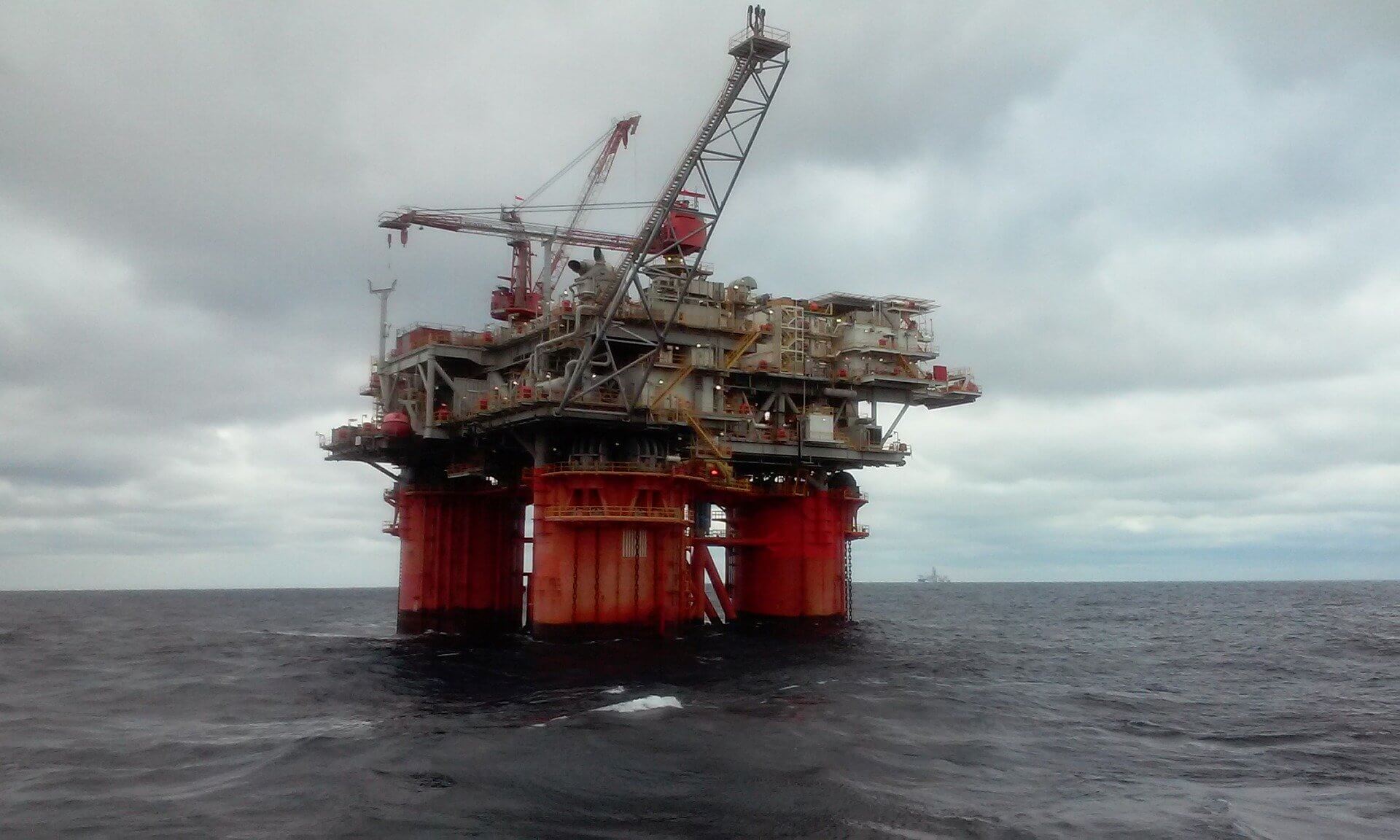Introduction by theme lead
A global fleet of more than 50,000 ships, from bulk carriers to cruise ships, and more than 10,000 offshore structures provide industries and populations around the globe with raw materials, manufactured goods, food and energy. When offshore structures and ships reach the end of their productive life, they must be decommissioned and dismantled, recycled or disposed of. These immense engineered assets are designed and constructed to withstand the harshest environments and are often contaminated with hydrocarbons and other hazardous materials. Deconstructing these structures at the end of their engineering life is a complex and in many cases, hazardous, business.

While decommissioning of ships and offshore structures can be carried out safely and responsibly, and is in some places, the reality is that in too many cases it is not. The International Labour Organization has classified shipbreaking among the world’s most dangerous occupations, with unacceptably high levels of fatalities, injuries and work-related disease.
This programme sets out to improve safety of decommissioning offshore structures and ships in those places where unsafe practices are most prevalent and present the greatest threat to safety of the workforce and the environment. Through on-the-ground projects, research and community building activities, we hope to greatly improve safety in this area.
I am delighted to be involved in this important programme.
Professor Susan Gourvenec FREng, Theme Lead
Royal Academy of Engineering Chair in Emerging Technologies in Intelligent & Resilient Ocean Engineering www.southampton.ac.uk/iroe
Programme overview
An international workshop was held in London 8 and 9 July 2019 and acted as the starting point of this activity. The workshop convened 58 expert participants from academia, industry, policy makers and NGOs from 21 countries to work together to map fundamental safety challenges in the area, and develop impactful ways to address them.
Following the workshop, a funding call took place for workshop participants and their wider networks for projects that will improve safety in decommissioning of offshore structures and ships.
Read the full workshop report below

A second international workshop was held online on the 18 and 19 May 2022 which convened 47 experts from 15 countries, including many previous participants. The workshop aimed to reflect on any progress related to the safety challenges identified in the first workshop and to look forward to how we continue to address them.
Read the full workshop report below
Current projects
Six projects in the UK and overseas are now in progress to tackle the complex social, environmental and engineering challenges of decommissioning ships and offshore structures. Grants of between £50,000 to £200,000 in value have been awarded to the following:
Safe and sustainable decommissioning of offshore structures taking into consideration the peculiarities of the ASEAN & South Asia Regions
Led by Professor Omar bin Yaakob at Universiti Teknologi Malaysia: https://people.utm.my/omaryaakob/
Partners: Universiti Teknologi PETRONAS (Malaysia), PetroVietnam University (Vietnam), Newcastle University in Singapore (Singapore), Liverpool John Moores University (UK), Sea Sentinels Pte Ltd (Singapore), Mahidol University (Thailand) Institut Teknologi Bandung (Indonesia), R.L.Kalthia Ship Breaking Pvt. Ltd. (India)
To develop technical guidelines for safe and sustainable decommissioning processes and develop safe and sustainable recycling facilities and safe downstream waste management facilities for decommissioned offshore structures in ASEAN and South Asia.
The risks of structural failure of decommissioned offshore oil and gas installations worldwide
Led by Lee Allford at the Energy Institute (UK): https://www.linkedin.com/in/leeallford/
Partners: Regional Maritime University (Ghana), University of Strathclyde (UK), SEIP 7 (Brazil), Liverpool John Moores University (UK)
To investigate worldwide the major accident risks associated with the loss of structural integrity of oil and gas platforms during their decommissioning and assess whether the sector has adequate arrangements for managing these risks. Includes an international survey of stakeholders to obtain views on current practice with respect to structural integrity management.

Supporting the Ship Recycling Transparency Initiative
Led by Andrew Stephens at Sustainable Shipping Initiative (UK): https://www.shiprecyclingtransparency.org/
To build on the SRTI’s existing aims to accelerate a voluntary market-driven approach to responsible ship recycling practices. Includes improvements to the SRTI’s online platform through which shipowners can publicly disclose their ship recycling policies, and further development of their disclosure criteria to improve transparency in ship recycling value chains.
Establishing a global baseline and raising awareness to help deliver safety improvements
Led by Professor Fraser Sturt at University of Southampton (UK): https://www.southampton.ac.uk/archaeology/about/staff/fcs22.page
Partners: Advisian (UK), University tec de Monterrey (Mexico), University of Teramo (Italy), NGO Shipbreaking Platform (Belgium)
To develop an open access, dynamic and graphical web-dashboard with associated evidential material and reports on a wide range of information including the number, age and location of offshore structures and ships globally, the materials they contain, their legislative contexts and who has ownership and other responsibilities.
Ensuring the rights of communities and workers affected by shipbreaking
Led by Ingvild Jenssen at NGO Shipbreaking Platform (Belgium): https://www.shipbreakingplatform.org/grant-engineering-x/
Partner: Bangladesh Environmental Lawyers Association (BELA)
To increase awareness of existing workers’ rights, including occupational health and safety, to support demands for safer working conditions.

Safety envelope for ship recycling practices in Bangladesh: hazard identification and risk evaluation
Led by Dr Arun Dev at Newcastle University in Singapore: https://from.ncl.ac.uk/improving-safety-in-ship-recycling-practices-in-bangladesh
Partners: Bangladesh University of Engineering and Technology (Bangladesh), Kabir Steel Limited (Bangladesh)
To achieve a better understanding of the relationship between ship recycling practices, their hazards and the safety and wellbeing of the people who work in ship dismantling/recycling facilities in Bangladesh.
